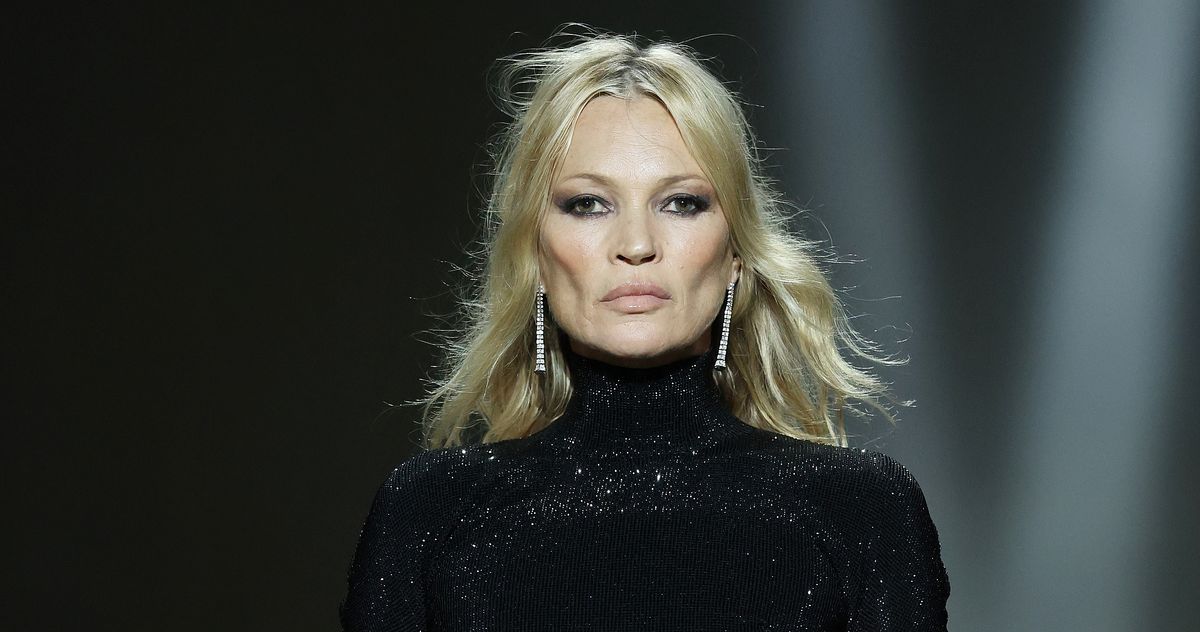WGA Removes Park Chan-wook and Don McKellar from 'The Sympathizer' Writing Team
#wga #park_chan-wook #don_mckellar #the_sympathizer #2023_strike

Introduction
In a shocking turn of events, the Writers Guild of America has officially tossed out renowned filmmaker Park Chan-wook and his partner Don McKellar for their involvement in writing for HBO's highly anticipated series, 'The Sympathizer'. This decision comes as a huge blow to both the filmmakers and the show's production team, as the 2023 strike has been a major hurdle for the industry.
Key Details
Park Chan-wook and Don McKellar have been known for their exceptional work in the film industry, with Chan-wook being hailed as one of the most acclaimed filmmakers in the world. However, their decision to continue writing during the 2023 strike, despite the WGA's directive, has resulted in their removal from the guild. This move is a clear indication of the WGA's strict stance on the strike, as they aim to protect the rights and interests of their members.
Impact
The removal of Park Chan-wook and Don McKellar from the WGA has not only affected their personal careers but also has a significant impact on the production of 'The Sympathizer'. With their writing contributions now being deemed invalid, it remains to be seen how the show will move forward and whether it will meet its expected release date. This decision also serves as a warning to all other industry professionals to abide by the
About the People Mentioned
Park Chan-wook
Park Chan-wook is a renowned South Korean film director, screenwriter, and producer, celebrated for his visually striking thrillers blending violence, revenge, and psychological depth.[2][3] He rose to international prominence with his **Vengeance Trilogy**: *Sympathy for Mr. Vengeance* (2002), the breakout *Oldboy* (2003), which won the Grand Prix at the 2004 Cannes Film Festival, and *Lady Vengeance* (2005).[1][2][3] These films, praised for their stylistic innovation and box-office success in Korea, established him as a leading filmmaker, with Quentin Tarantino advocating for *Oldboy*'s top Cannes honor.[2] Key achievements include the Jury Prize (shared) for *Thirst* (2009) at Cannes, the Vulcan Prize and Palme d'Or nomination for *The Handmaiden* (2016), and Best Director for *Decision to Leave* (2022) at Cannes.[1][2] *The Handmaiden* also earned him the BAFTA for Best Film Not in the English Language.[2] He expanded into English-language projects with *Stoker* (2013), produced Bong Joon-ho's *Snowpiercer* (2013), and directed miniseries like *The Little Drummer Girl* (2018) and *The Sympathizer* (2024).[1][2] Other honors encompass the Alfred Bauer Prize at Berlin for *I'm a Cyborg, But That's OK* (2007) and jury roles at Venice (2006) and Cannes (2017).[1][2] His 2025 satirical thriller *No Other Choice* garnered a Golden Globe nomination for Best Foreign Language Film and an Academy Award shortlist for Best International Feature, though it faced Oscar snubs despite critical acclaim.[2][4] Today, Park remains one of cinema's most influential directors, with recent works like *Decision to Leave* and *No Other Choice* underscoring his mastery of genre-blending narratives and formal experimentation, sustaining global relevance.[1][4] (298 words)
Don McKellar
Don McKellar is a Canadian writer, director, actor, and producer born in Toronto on August 17, 1963.[1][2][5] Raised in an educated family—his father a lawyer and mother a teacher—he began his career in theatre, co-founding Childs Play Theatre as a youth, before transitioning to film and television.[1][2] McKellar gained prominence through collaborations with directors like Bruce McDonald, writing and starring in *Roadkill* (1989; Genie nomination for Best Screenplay and Supporting Actor) and *Highway 61* (1991; Genie for Best Actor).[1][2][3] He earned further acclaim co-writing *Thirty Two Short Films About Glenn Gould* (1993) and *The Red Violin* (1998) with François Girard, and winning a Genie for Best Supporting Actor as a pet shop owner in Atom Egoyan's *Exotica* (1993).[2][3] Notable acting roles include Curtis in *Twitch City* (two seasons), Darren Nichols in *Slings & Arrows* (three seasons), and appearances in films like *The Adjuster* (1991; Genie nomination), *eXistenZ* (1999), and *Blindness* (2008; screenwriter and actor).[1][2][3] His directorial debut, *Last Night* (1998), which he wrote and starred in, won the Prix de la Jeunesse at Cannes.[3][4] McKellar also co-wrote the Tony Award-winning musical *The Drowsy Chaperone*, which toured major cities.[1][4] He has directed TV series like *Michael: Tuesdays and Thursdays*, *Sensitive Skin* (also starring), and films including *The Grand Seduction* and *Through Black Spruce*.[1] McKellar remains active, serving as writer, executive producer, and co-showrunner on HBO's *The Sympathizer* (2024), co-created with Park Chan-wook and adapted from Viet Thanh Nguyen's Pulitzer-winning novel, featuring Robert Downey Jr. in multiple roles.[4] An eight-time Genie nominee and two-time winner, he continues blending indie sensibilities with mainstream projects in Canadian and international cinema.[2][4]
About the Organizations Mentioned
Writers Guild of America
## Overview of the Writers Guild of America The Writers Guild of America (WGA) is a labor union that represents writers in the film, television, radio, and digital media industries across the United States. It is divided into two branches: the Writers Guild of America, East (WGAE) and the Writers Guild of America West (WGAW). ### History The roots of the WGA date back to 1920 when the Screen Writers' Guild (SWG) was formed to protect and promote the interests of screenwriters. The SWG affiliated with the Authors' League and aimed to establish fair credits, compensation, and working conditions for writers[1][5]. By 1933, the SWG had reorganized and began negotiating with studios, although it wasn't until 1939 that the studios recognized the union[6]. The first contract was finalized in 1942, marking a significant milestone for writers' rights[6]. ### Key Achievements - **Contract Negotiations**: The WGA has successfully negotiated contracts that secure minimum pay, residuals, and credit protection for writers. Notable achievements include the first residuals for television reruns in 1953 and the merger of unions to form the WGA in 1954[2][6]. - **Residuals and Compensation**: The WGA has fought for fair compensation and residuals, ensuring that writers receive payments for reuses of their work in various media formats[5]. - **Industry Representation**: The Guild advocates for writers through legislation, international agreements, and public relations efforts, furthering their interests in the global media landscape[8]. ### Current Status Today, the WGA continues to play a crucial role in defending writers' creative rights and compensation. It has adapted to technological changes in the industry, addressing issues such as digital media and streaming residuals. The Guild also supports educational initiatives and community outreach through the Writers Guild Foundation, established in 1966[3][5]. ### Notable Aspects
HBO
## HBO: A Comprehensive Overview **What HBO Does** HBO (Home Box Office) is a leading American premium cable and streaming television network, renowned for its high-quality, commercial-free programming. It specializes in a mix of first-run and classic movies, sports events, comedy specials, and critically acclaimed original series—many of which have become cultural touchstones[4]. Unlike traditional networks, HBO operates on a subscription model, requiring viewers to pay extra for access to its content[2]. Today, HBO is available not only via cable and satellite but also through its digital platforms, HBO Max (now rebranded as Max), which streams its extensive library and exclusive originals to a global audience[4]. ## History HBO traces its origins to 1965, when Charles Dolan founded Sterling Information Services, aiming to provide television to New York City hotels[1]. The venture struggled until Time Inc. acquired a stake, and the concept evolved into “The Green Channel,” which became HBO upon launch on November 8, 1972, in Wilkes-Barre, Pennsylvania[1][2]. Its debut broadcast featured a live NHL hockey game and a movie, reaching just 365 subscribers[5]. Initial growth was slow due to cable’s limited reach and regulatory hurdles, but HBO’s fortunes changed after it became the first network to deliver programming via satellite in 1975, enabling national distribution[4]. By the late 1970s, HBO was profitable and rapidly expanding[2][5]. ## Key Achievements HBO pioneered the premium cable model, offering uncut, commercial-free entertainment and establishing itself as a tastemaker in television[4]. It was instrumental in the rise of cable TV, with subscriber numbers soaring from 50,000 in 1974 to 1.5 million by 1978[3][5]. HBO’s early focus on comedy specials and made-for-TV movies laid the groundwork for its later dominance in


:max_bytes(150000):strip_icc()/John-Oliver-Stephen-Colbert-072125-e0e1c3dcfe6a4d85b86003076f5983cb.jpg)
:max_bytes(150000):strip_icc()/The-Last-of-Us-bella-ramsey-pedro-pascal-010923-d13e88c8cffb4c869f8831794d94fcb6.jpg)













